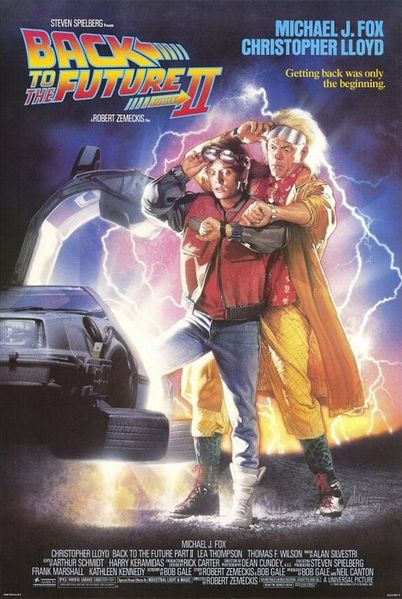Ahead of the visit of Jason Fontin, the editor-in-chief of the Technology Review, to the "Back to the Future" conference that will be held by the MIT Forum on Thursday the 5.5th at the Eretz Israel Museum in Tel Aviv, we set out to check to what extent the movie "Back to the Future" succeeded in predicting the future.

In the movie "Back to the Future" 2 released in 1989, a futuristic picture of the world in 2015 was presented, flying cars, accurate meteorological forecast (by the minute), organ replacement, clothing that adapts to the wearer, a camera that recognizes faces, flying skateboards, holograms, the landscape channel , payment using fingerprints, a machine that takes the dog out by itself, food that is ready in a few seconds, video calls and also, wearing two ties is in fashion.
However, the fax is still in use, and the paper is still paper…. And it is true that the deadline is approaching, so it is interesting to look at the film again and examine whether it really succeeded in predicting the technological world as it will be in 2015? The year 2015 is close but not here yet, and even so today we can already guess what the technologies will be that will be used by us in four years.
To make an informed guess, we use the international technology magazine Technology Review, which ranks every year the ten emerging technologies that will have the greatest impact in the coming years. This year the magazine chose the following technologies:
- Social Indexing- a search adapted to the searcher's social affiliation
- Smart Transformers - converters that will allow controlling the flow of electricity to stabilize the electricity network
- Gestural Interfaces - controlling computers using the body
- Cancer Genomics - revealing the genetics behind cancer
- Solid State Batteries- batteries with high energy, which can be used in favor of cheaper electric cars
- Homomorphic Encryption - a new encryption method that will allow the use of cloud computing to be more secure
- Cloud streaming - a technology that will allow a better flow of programs that are in the cloud
- Crash Proof Code - technology that will allow software to be more secure (the end of the blue screen)
- Separating Chromosomes - a new and more accurate technology that will make it possible to read the DNA will change the world of health
- Synthetic Cells - The design of new synthetic cells will be able to speed up the development of vaccines, biofuel and more
Jason Fontin, the editor of the technology magazine Technology Review, will visit Israel next week and lead the "Back to the Future" conference of the MIT Forum. Other experts from the field of technology futurism will also speak at the conference, such as Oded Cohen, director of IBM's research laboratory in Israel, Prof. Yossi Matias, CEO of the development center and director at Google, Yuval Keenan, VP of Engineering and Network at Bezeq, Dr. Alex Komen, economic night commentator, Yankee Margalit an entrepreneur (Aldin) and their future, Zeev Efrat CEO of Frost & Sullivan Israel, Dr. Paul Fenster and Ehrlich Fenster patent editors, Eran Yariv development manager of Bing Mobile Israel Microsoft.
At the conference, professional experts, entrepreneurs and technologists from Israel and the world will discuss the following questions: What will the technological platforms, innovative applications and the technological world look like in the near future? What is the business significance regarding existing and emerging start-up companies? How much will our daily lives change during the current decade? Our ability to predict the future. Among the topics: the future of laptops, tablet computers, cell phones, the future of the mobile and home internet infrastructure, modern web applications, applications for mobile devices, location-based applications, applications based on image and motion recognition, voice recognition, touch screens, clouds and much more.

One response
I think it's a shame they didn't invent the flying skateboard. Everything else is really science fiction.